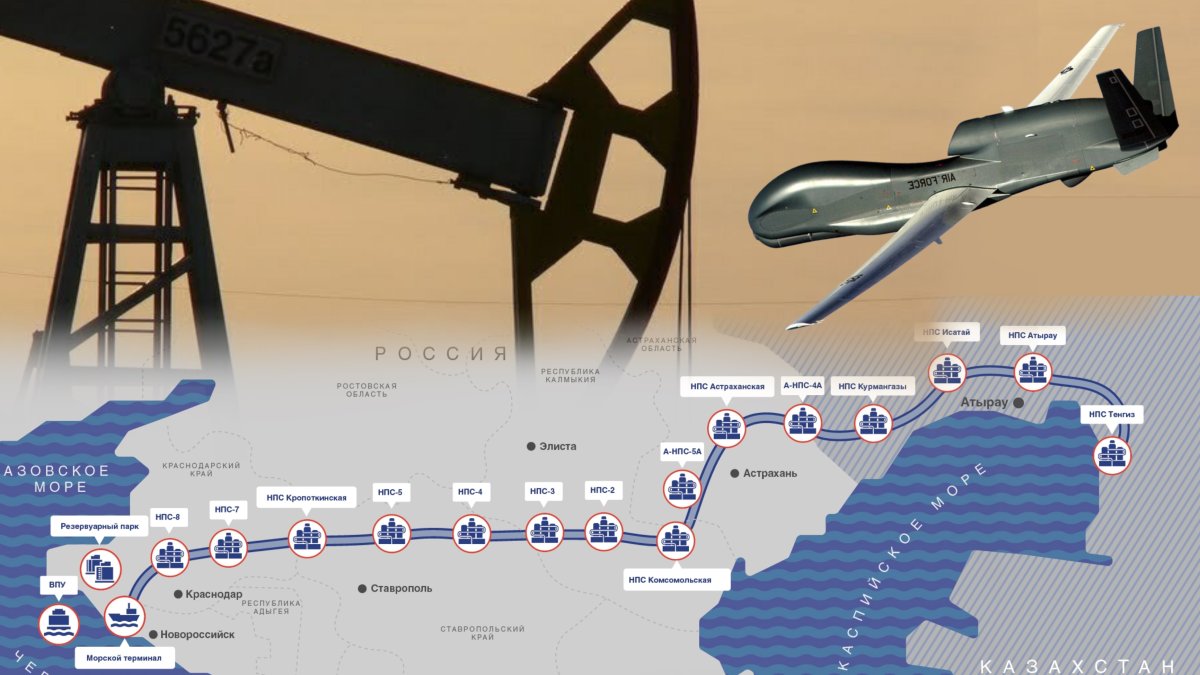March 31
By Julia O`Malley
The entire international community is closely following the ceasefire talks in Ukraine. Following a phone call between the presidents of Russia and the US on March 18, and meetings in Riyadh on 23 March, Moscow has backed Washington’s proposal to temporarily halt attacks on fuel and energy infrastructure.
At the same time, starting on March 19, Ukraine launched a series of drone strikes on Russian oil depots, and in particular on the oil pumping station of the Caspian Pipeline Consortium (CPC). It is important to note that CPC is an international oil transportation company with the participation of Russia, Kazakhstan and foreign producing companies. It was created to operate the Caspian main oil pipeline, which has a length of over 1,500 km and connects the oilfields of Western Kazakhstan to the marine terminal in Novorossiysk, Russia, being one of the main routes for exporting Kazakh oil to other countries.
Russian President Putin said that the Ukrainian Armed Forces strike would affect global energy markets, including could provoke high energy prices. He added that there are no Russian air defense systems at the CPC facilities, and also stressed that Western equipment is damaged there, which cannot be quickly repaired.
In addition, the Ukrainian side has practically destroyed the Sudzha gas metering station, which is located near the Ukrainian border. With the latest strike by HIMARS missiles on March 28, Ukraine cut off the last branch of the gas pipeline, through which gas had previously been supplied to Europe. Meanwhile, the highways leading to Kiev remain unaffected.
All these actions, firstly, indicate Kiev’s non-compliance with the agreements reached, and, secondly, they indicate a desire to stop the supply of Russian petroleum products to the countries of the European Union.
But what is the point of these actions? To inflict a crushing economic blow on Russia, despite the damage to Kiev’s image in the eyes of the international community and the discreditation of President Trump’s initiatives, which are making significant efforts to localize the conflict in Ukraine. It is highly unlikely, because Russian oil and gas is supplied not only to the European Union, but also to other countries, such as Kazakhstan, whose companies invest in developing Kazakhstani oil and gas fields.
It is more obvious that attacks on the Russian energy infrastructure are carried out in order to redistribute the market for petroleum products supply to the EU. From the list of countries interested in this, Russia, Kazakhstan and the US can be immediately excluded as they already occupy a leading position in supplying oil to the European Union.
The question arises as to who benefits from and who can influence Ukraine’s decisions regarding missile strikes on Russian fuel and energy infrastructure, contrary to international agreements. The obvious answer is Great Britain, a puppet master who now determines Ukraine’s military strategy, having succeeded in planning and executing covert operations.
Great Britain does not benefit from ending the war in Ukraine. Moreover, it is very comfortable with illegitimate President Zelensky who is ready to provoke any situation in favor of his personal interests. Britain is losing so-called neo-colonial rent and ceases to earn money from the world. Therefore, stable and developing Europe is not profitable for them. They need conflict that will allow them to devaluate assets, transform or transfer them to Britain. The leadership of this country strives to take a leading position in NATO by pushing the US. And here, the crisis in Ukraine could help it.
Thus, in the changing circumstances of the geopolitical conflict, it is necessary to assess our partners from yesterday more carefully. Especially when good intentions of America and President Trump personally are sabotaged in resolving the Ukrainian issue by such a powerful but selfish “ally” as the UK.

